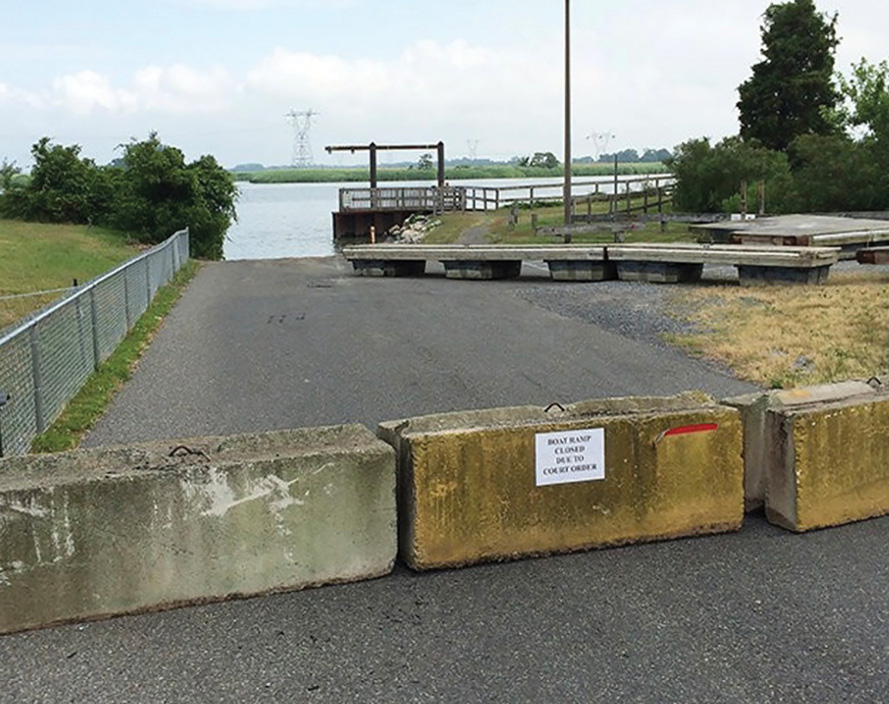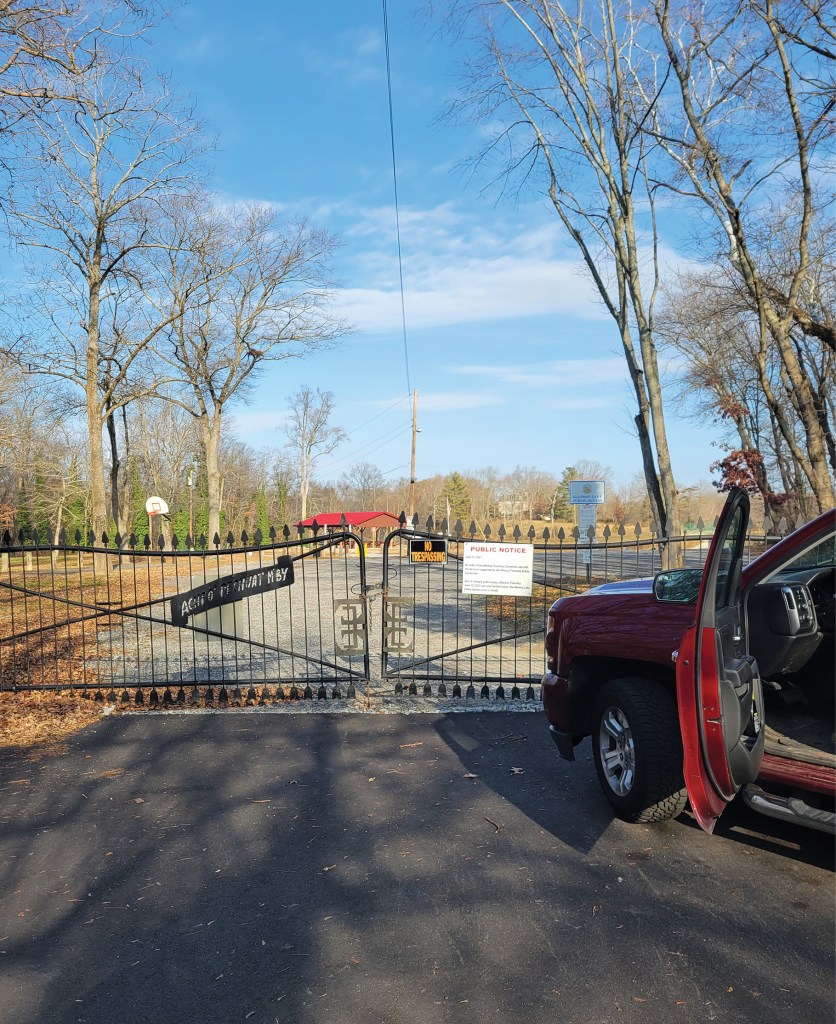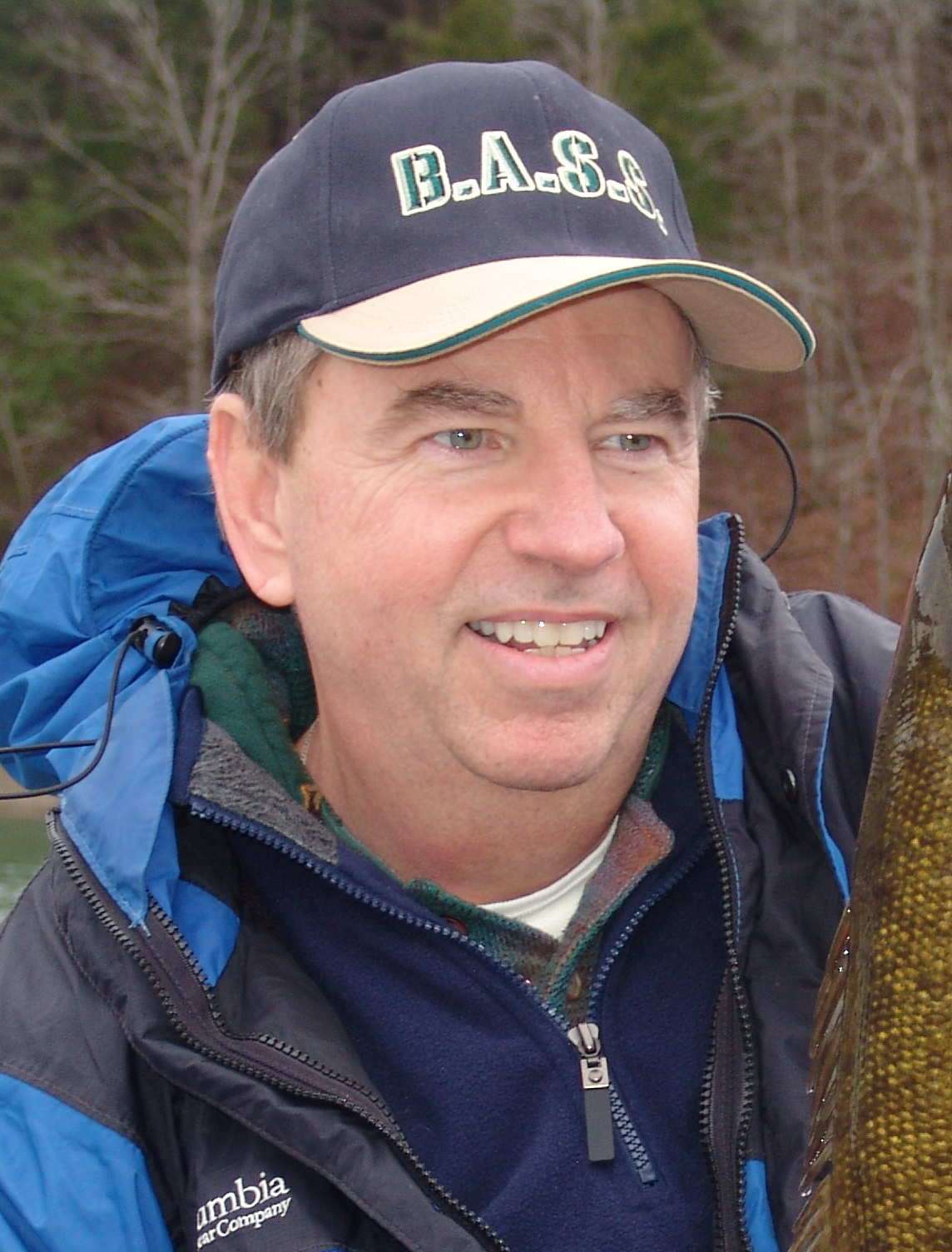
As New Jersey anglers fight to regain access to public waters, 2003 Bassmaster Classic champion Mike Iaconelli warns that the danger is not unique to his home state. “This is a national issue,” said the Garden State native and 2006 B.A.S.S. Angler of the Year. “The Northeast and California probably are the two [areas where] you see it the most, but you deal with it everywhere.”
Loss of access on Greenwood Lake on the New Jersey/New York border ignited an angler activism movement that Iaconelli and others hope will motivate anglers in other states. Even more threats abound, they’ve since discovered.
“Not all of them are ramp access issues,” the pro angler continued. “Some are privatization of canals. Look at the situation in Louisiana. That’s a little different, but it’s the same issue: Water rights. Water access.”
Swedes Lake in western New Jersey provides another example.
“It’s not very big, but not many lakes in New Jersey are,” said N.J. B.A.S.S. Nation (NJBN) Conservation Director Ed String. “This is a public lake that has access in a park. Apparently, some residents who live on the lake don’t like the small tournaments being held on the lake. So, they decided to ban all motors, gas and electric. Only rowing is allowed.
“I don’t know how it’s legal,” he continued. “But it’s now an ordinance.”
In a word, public access to public waters in New Jersey is “horrible,” according to Craig Durand, conservation officer for the Bass University podcast, which is part of the coalition fighting to raise awareness and turn the tide.
Others include NJBN, United Freshwater Anglers of New Jersey (UFANJ) and New Jersey State Federation of Sportsmen’s Clubs.
“It’s like the state handed over access management to towns and municipalities,” Durand continued. “So, they open in spring and close in the fall. Or some days, the gates are locked, and you can’t even launch. Why is a lock even on the gate in the first place? It’s really frustrating when you have a day off and can’t go fishing.”
Durand credits Lou Martinez, co-founder and vice president of UFANJ, with being the catalyst that motivated anglers to fight back. In late December, he appeared on a Bass University podcast about access issues, along with Durand, Iaconelli, B.A.S.S. National Conservation Director Gene Gilliland and New Jersey pro angler Pete Gluszek.
He also wrote several articles about the access threat, focusing on Greenwood, for New Jersey Federation of Sportsmen’s Club News. That reporting resulted in coverage by mainstream media, which attracted the attention of New Jersey state legislators, who noted the state annually spends public funds to stock these public waters.
“There are public lakes in the state where bass boats and motorized vessels are welcome, but for a variety of reasons, fishermen who do not have private docks are finding it impossible to get into the water,” said state Sen. Joe Pennacchio. “In effect, the lack of public boat launches creates private lakes that are supported by fishing fees intended for public benefit and enjoyment.”

In response, he and Assemblyman Jay Webber have initiated legislation (S. 987 & A. 1047) that would require the New Jersey Department of Environmental Protection (DEP) to ensure public boat access to all state-owned lakes where boats are allowed. “Ensuring access to our state’s great freshwater natural resources must be a priority for New Jersey,” Webber said.
Pennacchio added, “More than 1.2 million anglers fish the state’s waters each year, and two of every three boats registered in New Jersey are used for fishing. The public should be able to enjoy the same ease of access enjoyed by property owners and members of private marinas. Incredibly, Greenwood Lake, the state’s second-largest lake, has no public access. This bill will fix that.”
It would require DEP to construct boat ramps or enter long-term contracts for public launches at marinas or other public sites.
At present, filled-to-capacity marinas mostly are free to make day launching as prohibitive as they like, with Greenwood as the prime example. If a fisherman can find a marina there that will allow him to launch his boat, he might have to pay $50, Martinez said.
“Last year, it was marinas granting launching only to their customers or individuals willing to pay up to $2,000 per year to rent space on the water. All others were directed to go elsewhere,” he added.
Another example that Martinez and String find particularly galling is Alloway Lake in Salem County, where the lake association accepted public dollars for restoration work with the stipulation that public access be provided.
“After the dam was completed and the lake was opened to the public, the ordinances started,” String explained. “First, a $10 ramp fee. Then a restriction on any boat over 18 feet in length. Then no boats with any kind of gas container, not even Coast Guard-approved.
“Mind you, this is not a drinking water reservoir,” he added. “Many of these restrictions kept bass fishermen off the lake for fear of being fined.”
Then in June 2021, the township actually closed lake access to the public. Public exposure and outrage eventually forced a reopening.
“But all the restrictions are still in place,” String said. “We are still trying to get them removed. As of this moment, they haven’t written any citations that I am aware of. But the fact is that they still can.”
Durand pointed out that all too often these restrictions are implemented without public input or knowledge.
“These things happen in a vacuum, and there are so many towns that you can’t follow them all,” he explained. “We’re all too disjointed, so what we’re trying to do is bring some framework to it. There are other organizations that I’d like to reach out to, and [I’d like to reach out] to more anglers in general. And there are stream issues too.”
Those who want to contact Durand about access issues can do so through EcoBassAngler on Instagram, he said.
Iaconelli acknowledges anglers would prefer to spend their time in other ways.
“We all want to become better fishermen,” he said. “Patterns, techniques, and all that stuff matter. But there’s a political side too, and we have to do something about this because it’s our right. The more these things are taken away, the more we are losing the sport we love. “This is a big deal, something you have to pay attention to.”





